PC
Switch
Cake or Death
1990, Paris. A woman, Gloria, poses nude for a sculptor. Some time later, Gloria and her girlfriend Joy go to see the finished statue in a prestigious art exhibition, only to find it being indecently groped in the gallery by a man in shadow. From there, things only get more unsettling as the encounter causes Gloria’s mental health to take a sharp decline and the game descends into psychological horror. Decarnation is the antithesis of games like To The Moon, where optimism and sadness mingled seamlessly. It might have similar pixel art walking sim gameplay, but it is a very different beast indeed. Before you know it, you’ll be swallowed by eyeballs in the floor and screaming clay monsters into oblivion. It certainly won’t suit everyone's tastes.
Gloria is also a cabaret dancer and it isn’t long before she catches the attention of Hervé Saint-Louis, an arts patron who wants to make her a global phenomenon. So when the cabaret owner wants to move her off the stage and into the wings to coach younger, prettier dancers, Gloria seizes the opportunity to move away from her old life and into potential superstardom. In a twisted turn, she ends up kidnapped by her new employer (specifically, his lackey named Bob). From there, the real horror begins. The game — if you can call it that, since your input amounts to little more than basic rhythm segments and dodging abominations who stalk you in the darkness — asks questions of the dark heart of humanity, of fame, and particularly of patriarchal fixation on women in the spotlight.
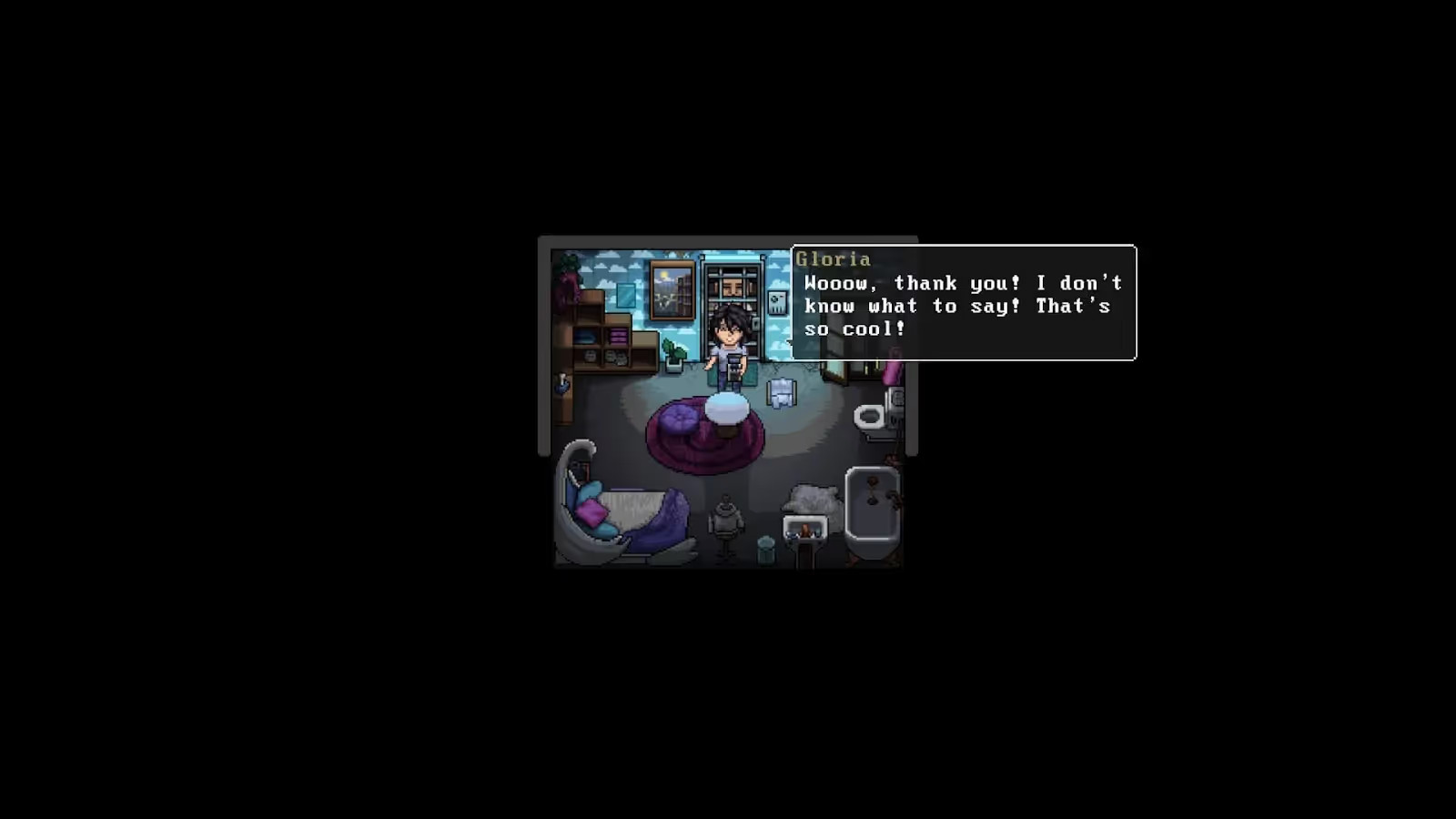
Decarnation is exceptionally well animated. The sprite movements, expressions and actions are elevated far beyond the likes of standard pixel art games. There are some truly disturbing scenes during which you’ll question whether what you’re seeing is all in Gloria’s mind, a supernatural manifestation, or both. Put it this way: you’ll never look at pancakes and chocolate sauce the same way again.
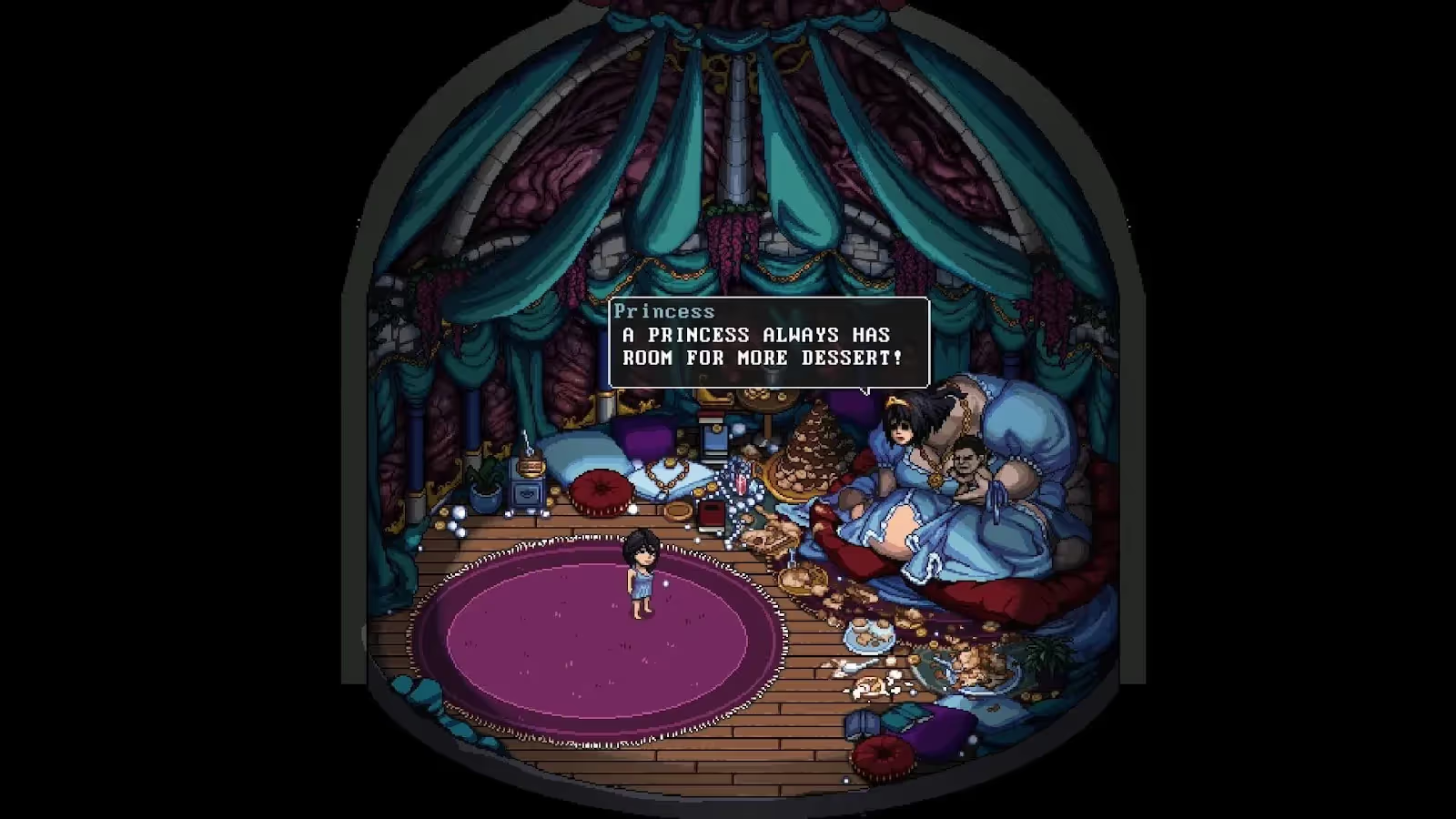
There are also some very dark themes. Stockholm Syndrome, bulimia, sexual threat and mental breakdown all feature. At times, Decarnation is utterly bleak. Rotting animal carcasses and garbage fill some halls; flies swarm over uneaten cake in Gloria’s cell. Her deterioration is not just mental but physical, as she gorges on desserts and then purges. The unseen presence of The Master controlling her imprisonment looms large, while Bob acts as the go-between, trying to make her feel comfortable. What feels real and unreal shifts at pace, though the manga-like depiction of the monstrosities tend to reveal the truth of any given scene.
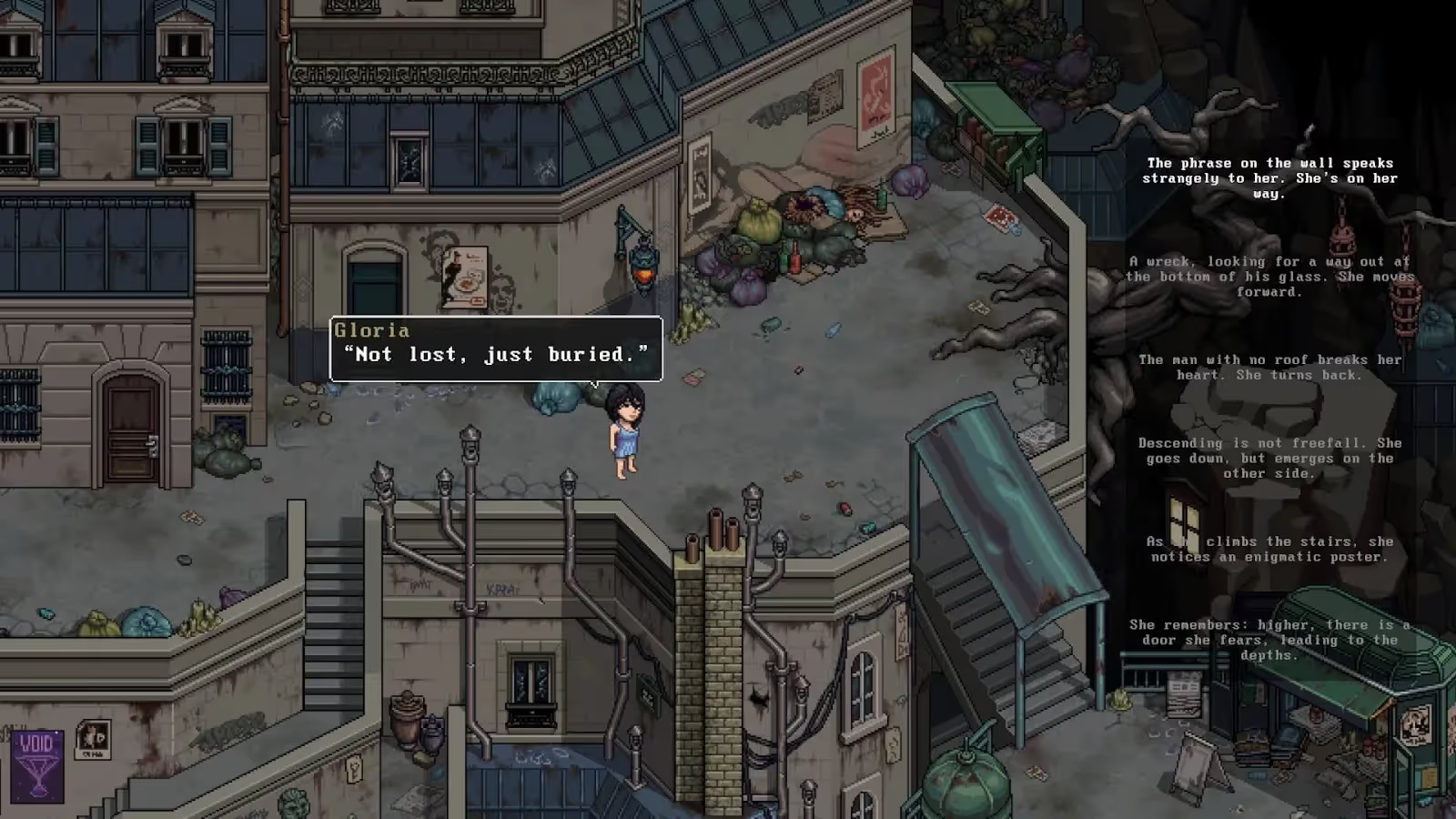
It all leads up to a twist, of course. Whether you work it out early on or not doesn’t really make it any less uncomfortable. However, the biggest challenge as a player you’ll face in Decarnation is to do with the gameplay — there isn’t really much of it. Aside from the basic Simple Simon-like rhythm games and variations on that theme, you’ll primarily be looking for an object in one location to use in another, or keeping a slider between two bars of a meter, or collecting floating notebooks to piece together a story in a certain order. Unfortunately, they don’t enhance the game as much as take you out of it, often clumsily, with intrusive sound effects during the rhythm game sections.
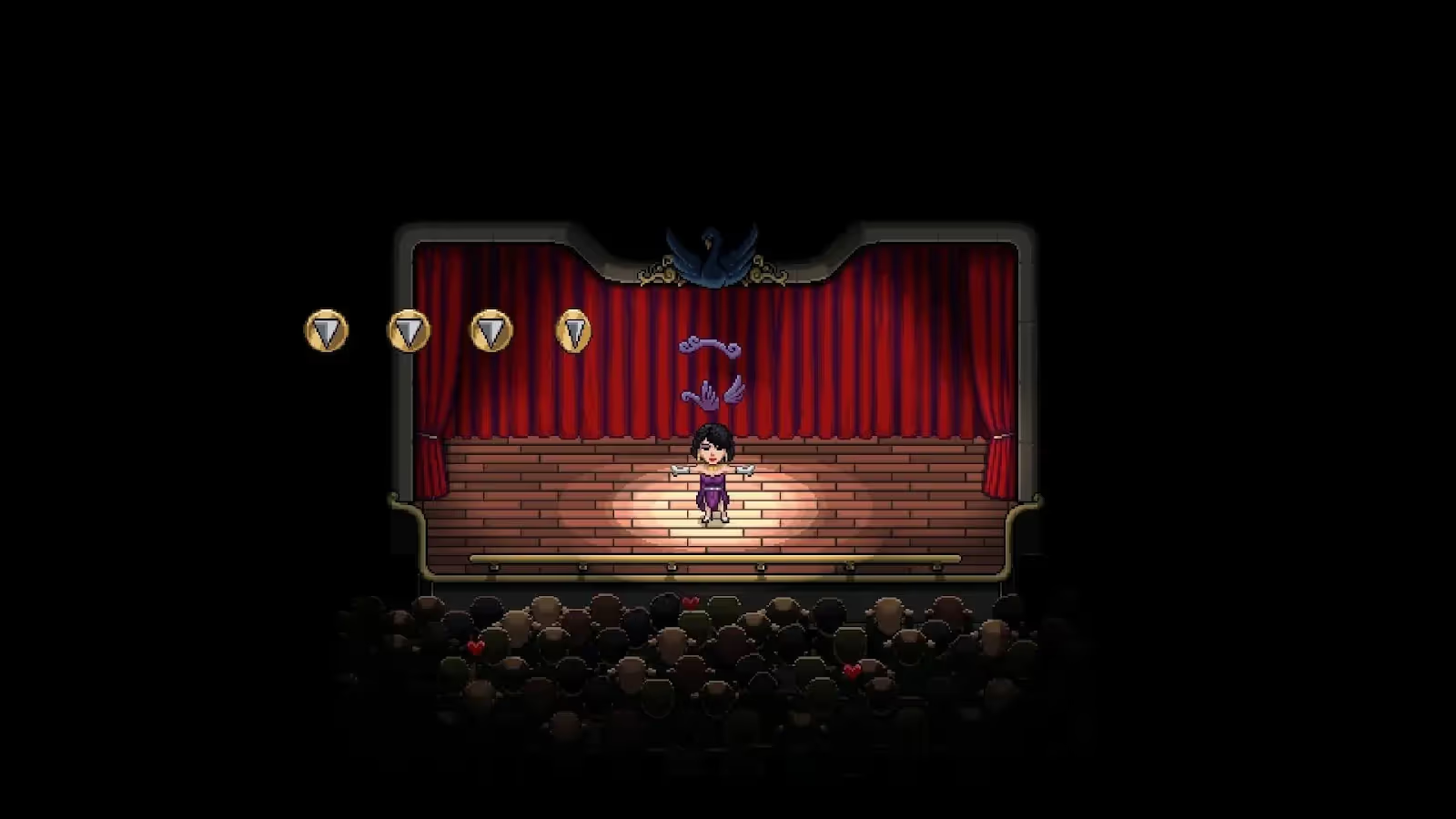
Otherwise, this is simply a story told through pixel art. Sure, it smashes you in the face with creative metaphors and the underlying tension often builds well, but over six acts at an hour or two each, it feels overwritten, overlong and often repetitive in the middle section. Reining in the indulgence to deliver a tighter story would have benefitted the game immensely.
Pixel art horror is exceptionally difficult to craft well. Normally developers opt to add gruesomeness to action or platform genres such as Limbo or The Binding of Isaac, rather than expanding on unease beyond the upfront ick factor. There are exceptions — such as the superb point-and-click The Excavation of Hob’s Barrow — but even that dabbles with the fantastical towards the end. Decarnation leans heavily into dialogue, perhaps too much, but you can’t argue it doesn’t provoke emotion. The music, including work from Silent Hill composer Akira Yamaoka and French duo Fleur et Bleue, transitions from sinister orchestral to French pop with ease. The reprisals of the latter are often heartbreaking, given that they recall Gloria’s heyday as a dancer, but they also symbolise her resistance to her incarceration.
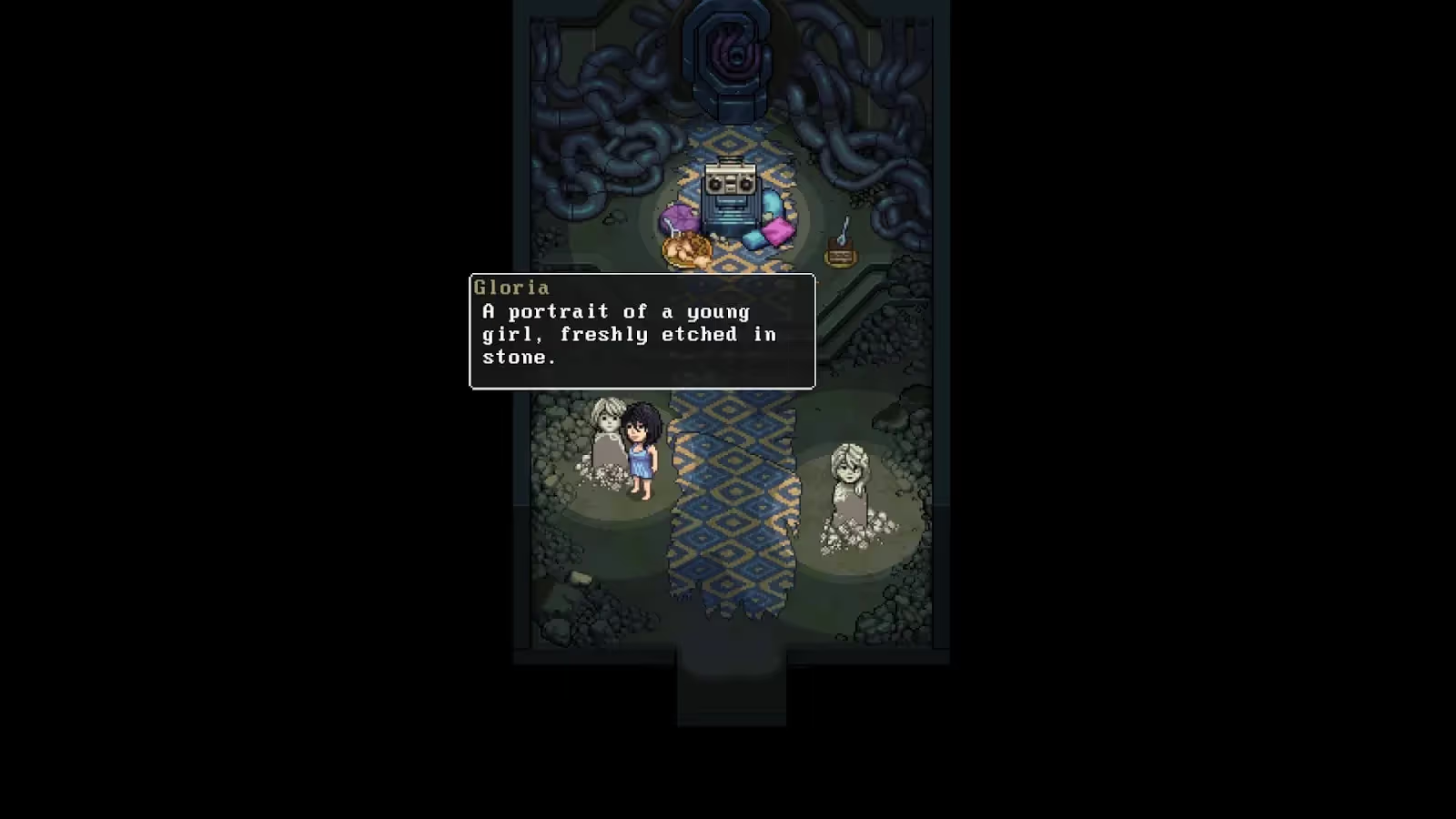
It’s a shame the technical aspects aren’t quite as polished. At one point an automatically saved checkpoint refused to provide anything but a black screen (thankfully, there is a scene selection option from the main menu). During a crowded train scene, Gloria was buffeted into a corner by aggressive sprites which refused to let her move on. There were also numerous dubious collision detection issues when avoiding the gaping toothy maws that descend on you in some sections.
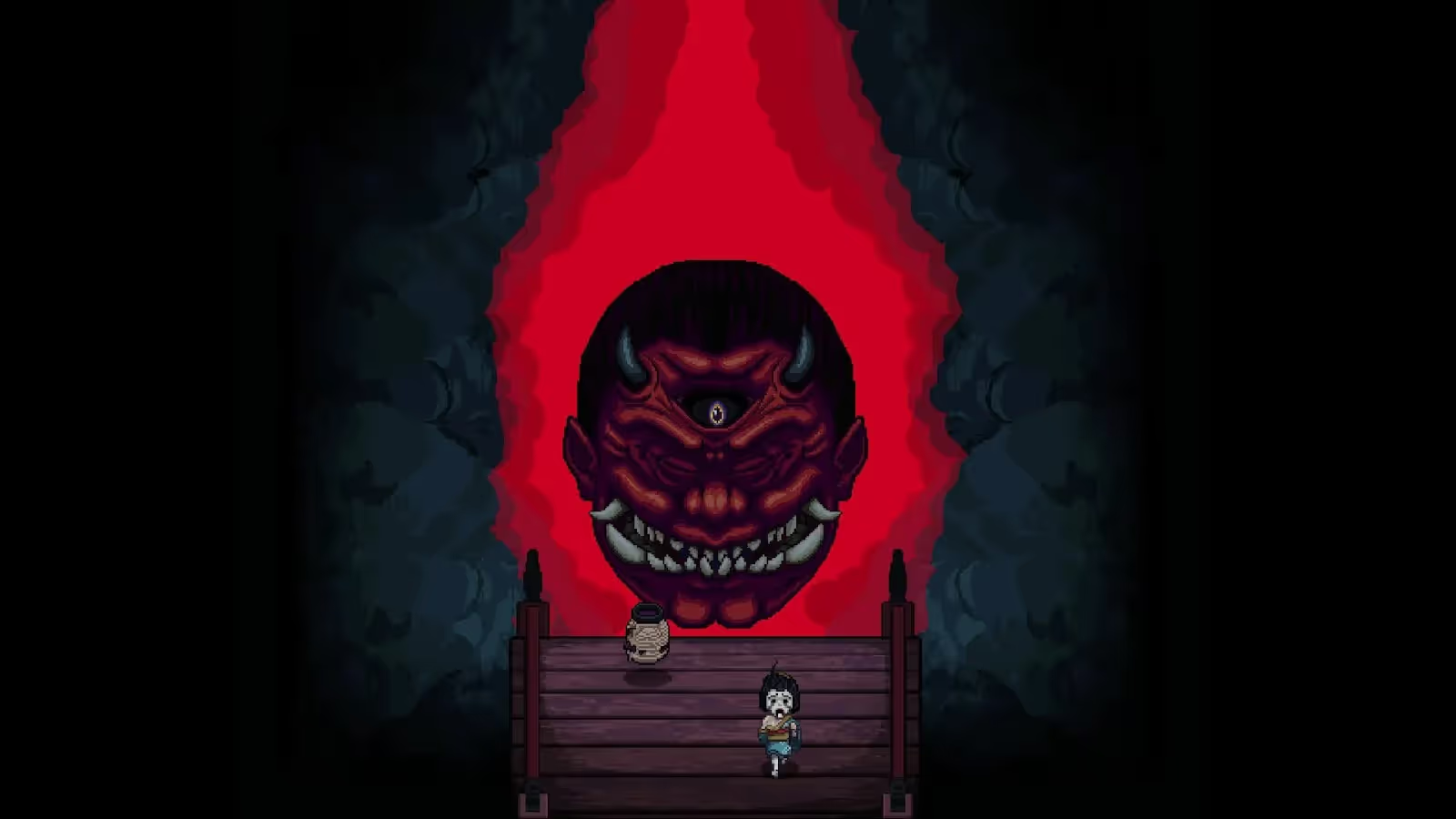
But while it’s not a narrative dud, for a game that relies primarily on its story I came out of it wondering what the message was meant to be, particularly at the end. Is it about hope in the face of despair? The male gaze? Revenge? I genuinely wasn’t sure what we were supposed to take away from Gloria’s experience other than “nasty shit happens to women”. The writer and director of this work is male, so it certainly wasn’t an autobiographical piece, which would at least have made the relentless darkness understandable from the point of cathartic and artistic release. The post-credits scene was also disturbing, for all the wrong reasons.
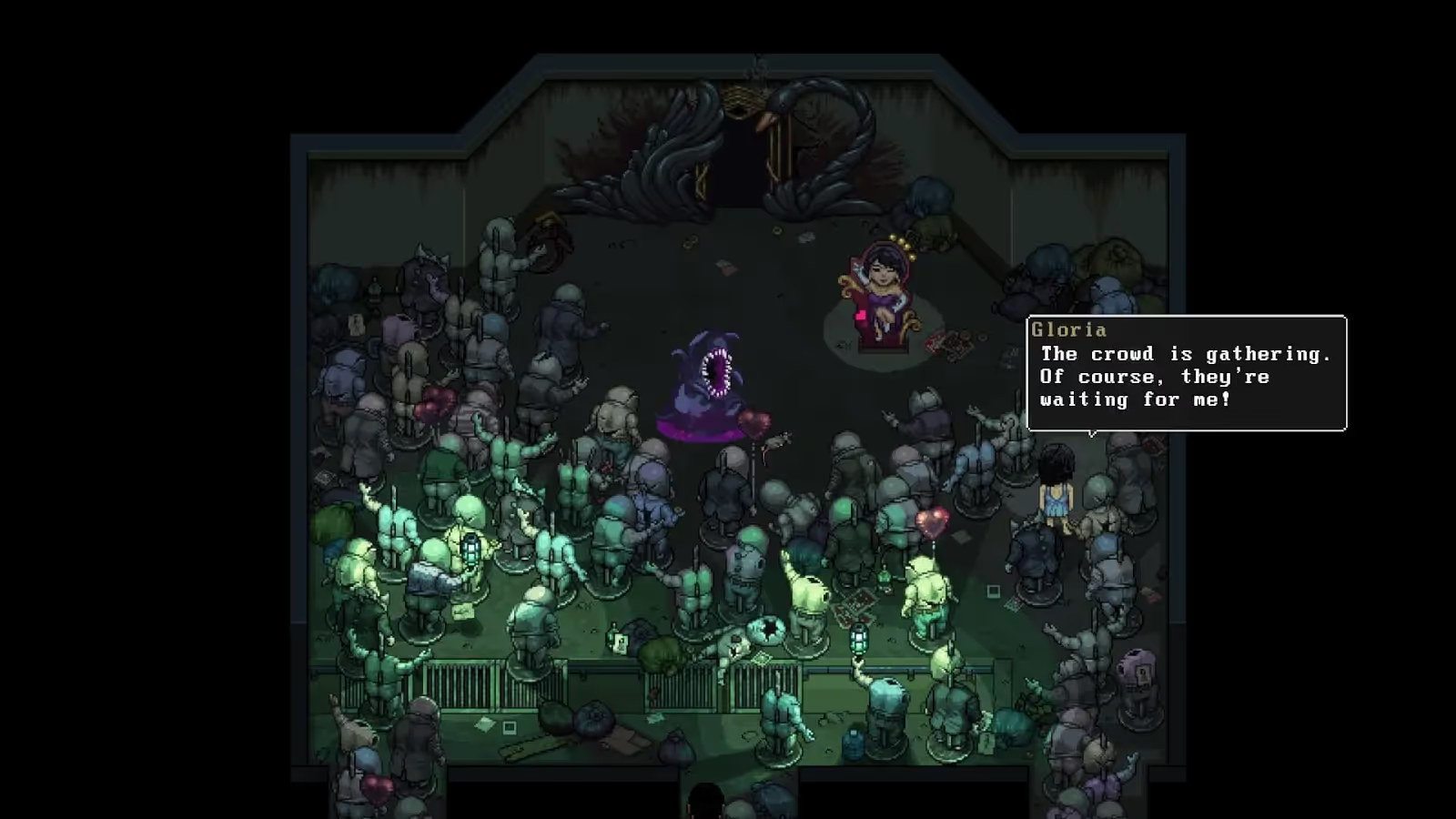
I’m torn about whether to recommend Decarnation or not. On the one hand, it’s clearly been thought about and well executed within the construct of its narrative beats. On the other hand, those beats are often too long and weighed down with gameplay elements that feel out of place. Unlike pixel art games such as To The Moon which balance light and shade with dexterity, the disturbing content here is likely to put off many people. While there are real moments of psychological horror, I’m still unsure what it was trying to say — and for a story-driven videogame, that’s a real shame.
You can subscribe to Jump Chat Roll on your favourite podcast players including:
Let us know in the comments if you enjoyed this podcast, and if there are any topics you'd like to hear us tackle in future episodes!



